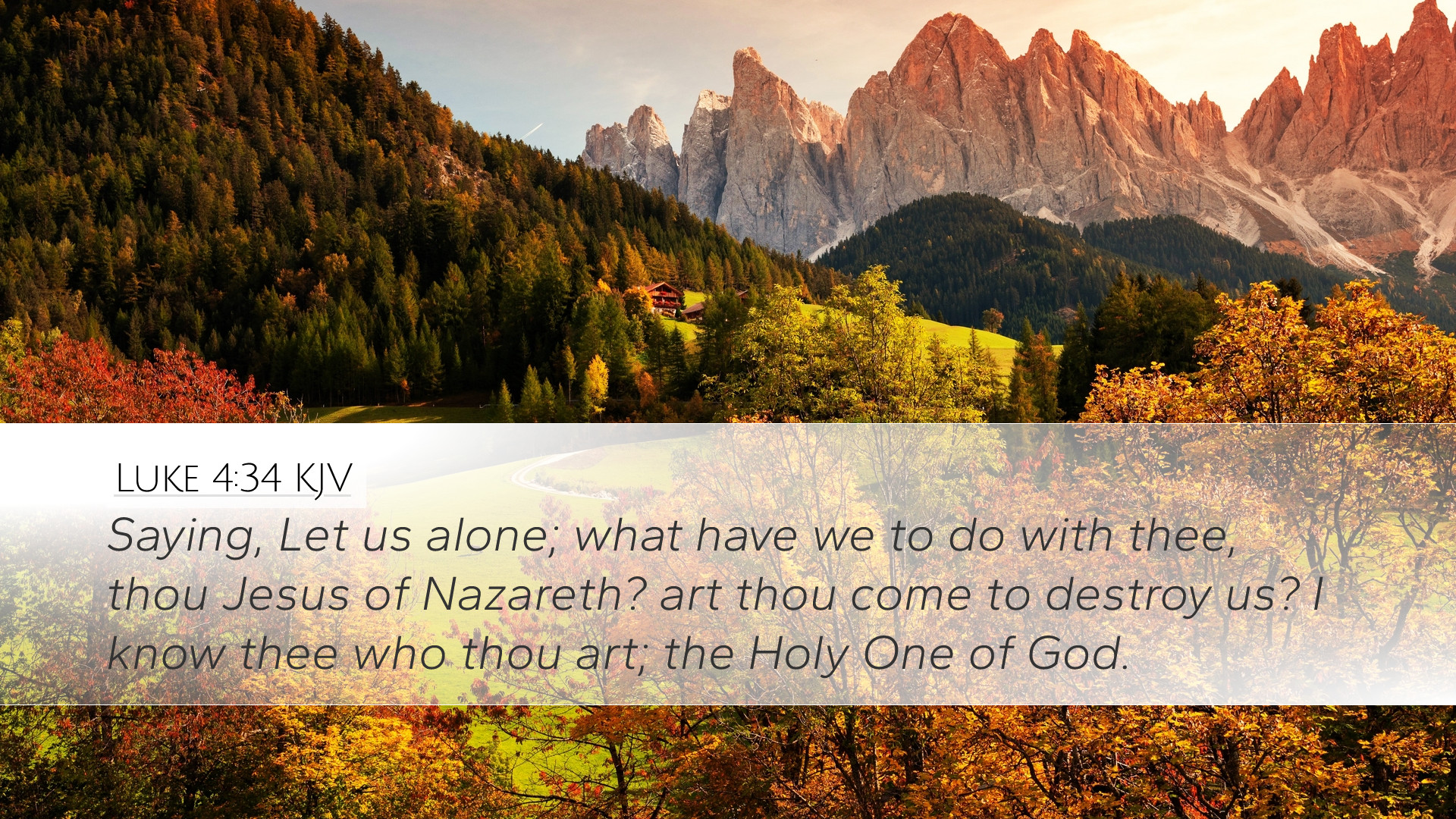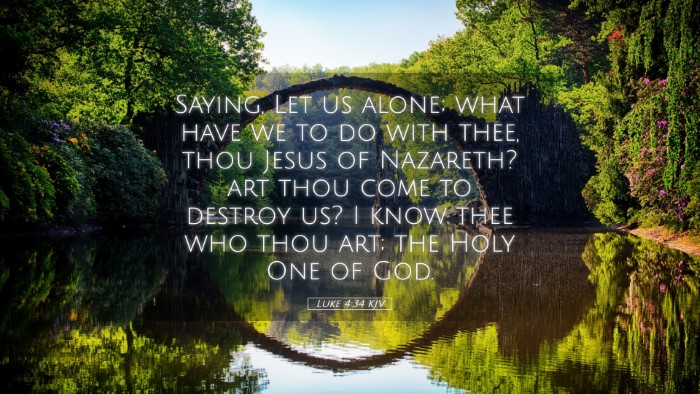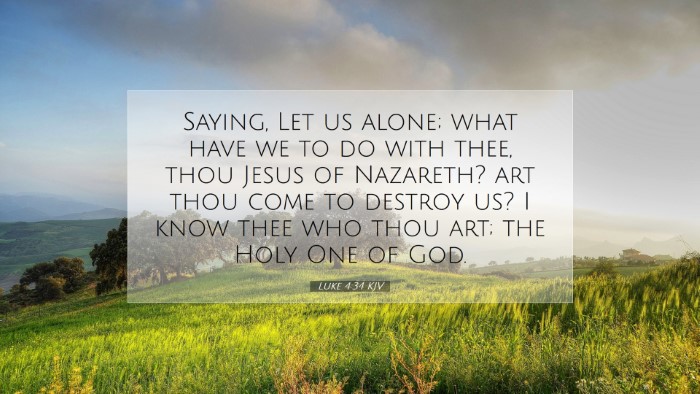Commentary on Luke 4:34
Bible Verse: "Let us alone; what have we to do with thee, thou Jesus of Nazareth? art thou come to destroy us? I know thee who thou art; the Holy One of God."
Introduction
This verse is a profound moment within the narrative of Jesus' early ministry, demonstrating His authority over evil spirits. It reveals not only the identity acknowledged by the demons but also the continual conflict between Christ and the forces that oppose Him. Understanding this confrontation requires a careful examination of the context, theological implications, and the insights provided by esteemed commentators.
Contextual Understanding
Luke 4:34 takes place during Jesus' visit to Capernaum, shortly after His baptism and temptation. It follows His teaching in the synagogue, where His authority was already highlighted (Luke 4:32). The presence of a man with an unclean spirit reveals the reality of spiritual warfare that accompanies Jesus’ ministry. The unclean spirit’s sudden outburst forms a striking contrast to the serenity of Jesus’ teaching.
The Response of the Evil Spirit
The cry of the unclean spirit, "Let us alone;" signifies a recognition of the authority and potential threat that Jesus poses. This reaction is noted by Matthew Henry, who emphasizes that the demons are uncomfortable in the presence of holiness. Their plea is less one of humility and more a statement of fear, suggesting their awareness of imminent judgment.
Recognition of Christ's Identity
The phrase "I know thee who thou art;" is significant. It reveals the demons’ knowledge of Jesus’ true nature as "the Holy One of God." Albert Barnes elaborates that this acknowledgment serves to highlight the stark difference between the unclean spirit’s nature and Christ's sinless holiness. The spirits, representing the forces of evil, affirm Jesus' divinity, thus illustrating that even unholy beings cannot deny who He is.
Theological Implications
This encounter with the unclean spirits solidifies key theological themes in Luke's Gospel:
- The Authority of Christ: Jesus' authority over demons exemplifies His cosmic power over spiritual realms, reinforcing His Messiahship.
- Spiritual Warfare: This event underscores the reality of spiritual conflict and the ongoing battle between good and evil.
- Revelation of Christ’s Holiness: The description as "the Holy One of God" emphasizes the clear distinction between the nature of Christ and the forces of evil.
Pastoral Insights
This verse provides rich material for pastoral reflection. It urges pastors to consider the spiritual battles faced by their congregants:
- Awareness of Evil: Understanding the reality of spiritual warfare can inform pastoral care and counseling.
- Trust in Christ's Authority: Believers are reminded that Christ has authority over all unclean spirits, providing hope in the face of oppression.
- Encouragement in Faith: The knowledge of Christ’s holiness can encourage believers to pursue holiness in their own lives.
Conclusion
Luke 4:34 is a remarkable demonstration of Jesus’ divine authority and His confrontation with evil. The recognition of His identity by the unclean spirit not only highlights Jesus' holiness but also serves as a clarion call to believers regarding their own spiritual battles. As they navigate through life, they can take comfort in knowing that the Holy One of God is their advocate and protector against the forces of darkness.


